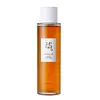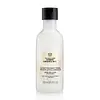What's inside
What's inside
 Key Ingredients
Key Ingredients

No key ingredients
 Benefits
Benefits

 Concerns
Concerns

No concerns
 Ingredients Side-by-side
Ingredients Side-by-side

Panax Ginseng Root Water
MaskingButylene Glycol
HumectantGlycerin
HumectantPropanediol
SolventNiacinamide
Smoothing1,2-Hexanediol
Skin ConditioningWater
Skin ConditioningHydroxyacetophenone
AntioxidantGlyceryl Glucoside
HumectantXanthan Gum
EmulsifyingPanthenol
Skin ConditioningDipotassium Glycyrrhizate
HumectantAllantoin
Skin ConditioningAdenosine
Skin ConditioningPanax Ginseng Callus Culture Extract
Skin ConditioningTheobroma Cacao Extract
Skin ConditioningDextrin
AbsorbentGlucose
HumectantPanax Ginseng Root Extract
EmollientPanax Ginseng Berry Extract
Skin ConditioningLactobacillus
Skin ConditioningSodium Hyaluronate
HumectantEthylhexylglycerin
Skin ConditioningDisodium EDTA
Panax Ginseng Root Water, Butylene Glycol, Glycerin, Propanediol, Niacinamide, 1,2-Hexanediol, Water, Hydroxyacetophenone, Glyceryl Glucoside, Xanthan Gum, Panthenol, Dipotassium Glycyrrhizate, Allantoin, Adenosine, Panax Ginseng Callus Culture Extract, Theobroma Cacao Extract, Dextrin, Glucose, Panax Ginseng Root Extract, Panax Ginseng Berry Extract, Lactobacillus, Sodium Hyaluronate, Ethylhexylglycerin, Disodium EDTA
Water
Skin ConditioningPropanediol
SolventButylene Glycol
HumectantSesamum Indicum Seed Oil
EmollientPhenoxyethanol
PreservativeCaprylyl Glycol
EmollientParfum
MaskingAcrylates/C10-30 Alkyl Acrylate Crosspolymer
Emulsion StabilisingPropylene Glycol
HumectantTrisodium Ethylenediamine Disuccinate
Panax Ginseng Root Extract
EmollientLimonene
PerfumingSodium Hydroxide
BufferingCitral
PerfumingCitronellol
PerfumingLinalool
PerfumingEugenol
PerfumingDextrin
AbsorbentOryza Sativa Extract
AbsorbentWater, Propanediol, Butylene Glycol, Sesamum Indicum Seed Oil, Phenoxyethanol, Caprylyl Glycol, Parfum, Acrylates/C10-30 Alkyl Acrylate Crosspolymer, Propylene Glycol, Trisodium Ethylenediamine Disuccinate, Panax Ginseng Root Extract, Limonene, Sodium Hydroxide, Citral, Citronellol, Linalool, Eugenol, Dextrin, Oryza Sativa Extract
 Reviews
Reviews

Ingredients Explained
These ingredients are found in both products.
Ingredients higher up in an ingredient list are typically present in a larger amount.
Butylene Glycol (or BG) is used within cosmetic products for a few different reasons:
Overall, Butylene Glycol is a safe and well-rounded ingredient that works well with other ingredients.
Though this ingredient works well with most skin types, some people with sensitive skin may experience a reaction such as allergic rashes, closed comedones, or itchiness.
Learn more about Butylene GlycolDextrin is used to thicken a product and helps bind ingredients together. It is created from starch and glycogen.
As an emulsifier, dextrin prevents ingredients from separating. This helps elongate a product's shelf life.
Studies show coating UV filters with dextrin prevents these ingredients from being absorbed. This helps UV ingredients last longer on the skin.
Learn more about DextrinGinseng root is a well-loved ingredient in Asian skincare for good reason. It hydrates the skin, soothes irritation, and helps even out skin tone.
In traditional East Asian medicine, ginseng has been used for centuries both as food and as a healing remedy, and modern research continues to confirm its skin benefits.
One of the standout features of ginseng is its ability to improve blood circulation and oxygen delivery to the skin, bringing a fresh supply of nutrients to support overall skin health. It also has antioxidant and anti-inflammatory properties. This helps to protect your skin against damage from UV exposure, pollution, and daily stress.
Additionally, studies suggest that ginseng may help reduce hyperpigmentation by inhibiting tyrosinase, the enzyme involved in melanin production.
There are different types of ginseng used in skincare, and while they all share core benefits, their potency can vary.
Most products use fresh or white ginseng because it’s more affordable. However, red ginseng, produced by steaming the root, contains higher levels of ginsenosides, which are compounds with proven anti-aging effects. These ginsenosides help reduce the appearance of wrinkles and improve skin elasticity.
Note: All forms of ginseng are listed simply as “Panax ginseng” in ingredient lists. We recommend reaching out to the brand if you have questions about which type of ginseng is used in their ingredients.
For general antioxidant benefits, any ginseng extract will do, but for wrinkle care or firmer skin, red or fermented ginseng is often more effective.
In short, ginseng is a powerhouse ingredient that supports hydration, radiance, and resilience.
Learn more about Panax Ginseng Root ExtractPropanediol is an all-star ingredient. It softens, hydrates, and smooths the skin.
It’s often used to:
Propanediol is not likely to cause sensitivity and considered safe to use. It is derived from corn or petroleum with a clear color and no scent.
Learn more about PropanediolWater. It's the most common cosmetic ingredient of all. You'll usually see it at the top of ingredient lists, meaning that it makes up the largest part of the product.
So why is it so popular? Water most often acts as a solvent - this means that it helps dissolve other ingredients into the formulation.
You'll also recognize water as that liquid we all need to stay alive. If you see this, drink a glass of water. Stay hydrated!
Learn more about Water